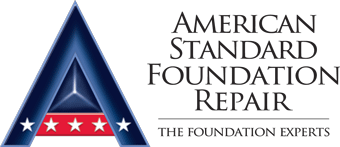Foundation Stabilization
Foundation Stabilization
Foundation stabilization is a term you might have heard before, but what exactly does it mean? It refers to the techniques and processes applied to ensure that the base of your building remains secure and safe, providing structural integrity to your home or building. This is a crucial aspect of any structure, as an unstable foundation can lead to a host of issues.
The stability can be threatened by a variety of factors. From soil-related issues to environmental factors, and even improper construction practices, many elements can lead to instability. Some of these are uncontrollable, such as shifts in the earth's crust or severe weather conditions. However, some factors like soil type and construction practices are within our control, and understanding these can help in preventing potential problems.
Recognizing the signs of instability is equally important. While every building is unique and may present different symptoms, common signs often include noticeable cracks in the walls or floors, uneven or sloping floors, and doors or windows that don't open or close correctly. These signs can indicate shifting or settling in an uneven manner. The consequences of ignoring these signs are far-reaching. If issues are left unaddressed, they can evolve into more serious problems. What begins as minor cracks could eventually lead to major structural damage. This not only leads to higher repair costs but also presents safety risks to occupants. Moreover, a stable foundation can help maintain or even enhance your property's value, an aspect any property owner would consider essential.
In Tennessee, Arkansas, and Mississippi, soil poses a unique challenge to stability. The soil composition in these regions varies, with a predominant presence of clayey and sandy soils, and expansive soils. These soil types can contribute to foundation problems due to their specific characteristics. For instance, clayey soils tend to expand when wet and shrink when dry, leading to movement that can affect your foundation. Understanding the impact of these soil conditions can help in mitigating their effect.
One area that can considerably impact a house's stability and foundation is the crawl space. While it might be an area often overlooked, crawl space problems can lead to significant issues. For example, moisture build-up in the crawl space can lead to wood rot, impacting the structural integrity of the house. Common problems usually involve settling and shifting of the structure. These are caused by various factors, such as changes in soil conditions or improper construction techniques. However, a range of solutions can effectively address these issues. Techniques such as underpinning, which strengthens the existing foundation, and soil stabilization, which improves the soil's physical properties, are commonly employed.
DIY solutions often fail because they tend not to address the root cause of the problem. Furthermore, foundation repair requires specialized knowledge and equipment, which most homeowners do not have. Hence, professional assessment and intervention become crucial when dealing with these issues.
Ignoring the signs can lead to worsening damage over time. The problems don't just disappear; they intensify. This not only risks the safety of the inhabitants but also means higher repair costs down the line. Besides, an unstable foundation can negatively affect your property's value, which isn't ideal for anyone's financial portfolio.
Changes in weather can lead to changes in soil moisture levels. During rainy seasons, soil might expand, exerting pressure on the foundation. Conversely, in dry seasons, soil shrinkage can occur, leading to movement and possible cracks. Regular inspections and maintenance can help ensure stability. Be vigilant about changes or signs of instability, ensure proper drainage around your property, and seek professional help when necessary.
Understanding its importance and the challenges associated with it can go a long way in ensuring your peace of mind. Contact American Standard Foundation Repair today for all your foundation needs.






